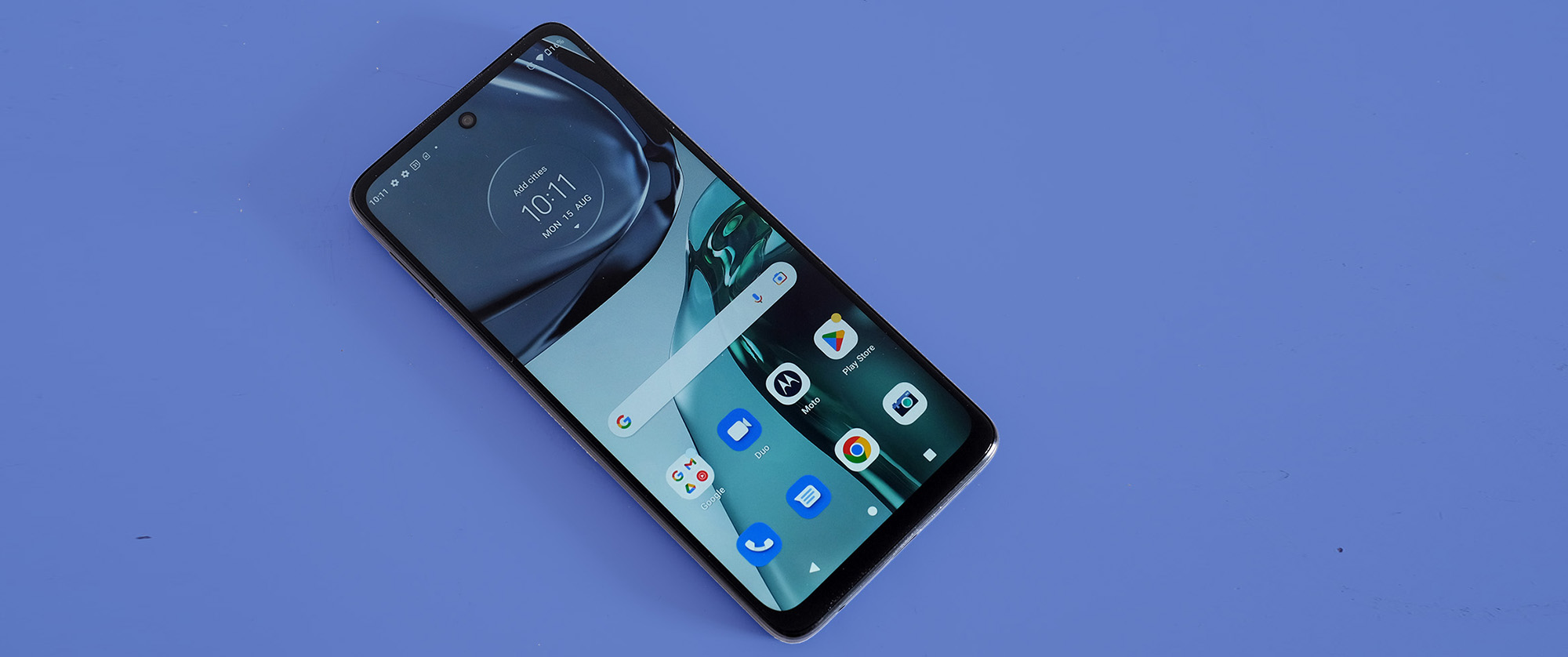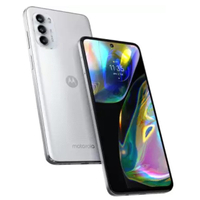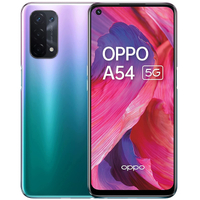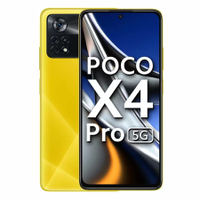TechRadar Verdict
The Moto G62 is a solid, good-value 5G phone. It’s a sound buy if you’re happy to make do with its pedestrian camera and limited gaming performance.
Pros
- +
A friendly route to low-cost 5G
- +
Solid stereo speakers
- +
Decent 120Hz display
- +
Generous storage
Cons
- -
Slow charging
- -
Often produces anemic photos
- -
Somewhat limited maximum display brightness
Why you can trust TechRadar
Two-minute review
The Motorola Moto G62 is an affordable 5G phone with a reasonably large screen and stereo speakers. These three characteristics make it seem made for entertainment, rather than just the basics.
It’s a rock-solid phone for people who want an upgrade that opens them up to the 5G mobile internet speeds that are now standard in phone contracts in many countries. The Moto G62 also has a few of the characteristics that have made the Moto G series phones easy to recommend for so long.
Overall, battery life is good, the design is unlikely to turn anyone off, the software is tasteful and uncluttered, and the price is right.
Compromises naturally creep in when you deal with a tightly restricted budget, though. The Moto G62 does not have a particularly impressive camera array. Night images are poor, daytime pictures can look undersaturated or at least a little cool, and video is limited.
The Moto G62 is similarly so-so for gaming, as its Snapdragon 480 Plus is a poor fit for graphically-intensive titles, like Fortnite.
In these two areas — the camera and high-end gaming — you’ll get much better results if you spend a little more money. However, if you’re interested in the Moto G62, it’s probably because you don’t want to spend more. If that’s the case, this phone is one of the best to buy right now.
Check out our rundown of the best Motorola phones and best cheap phones right now for more insight and alternatives.
Motorola Moto G62 price and availability
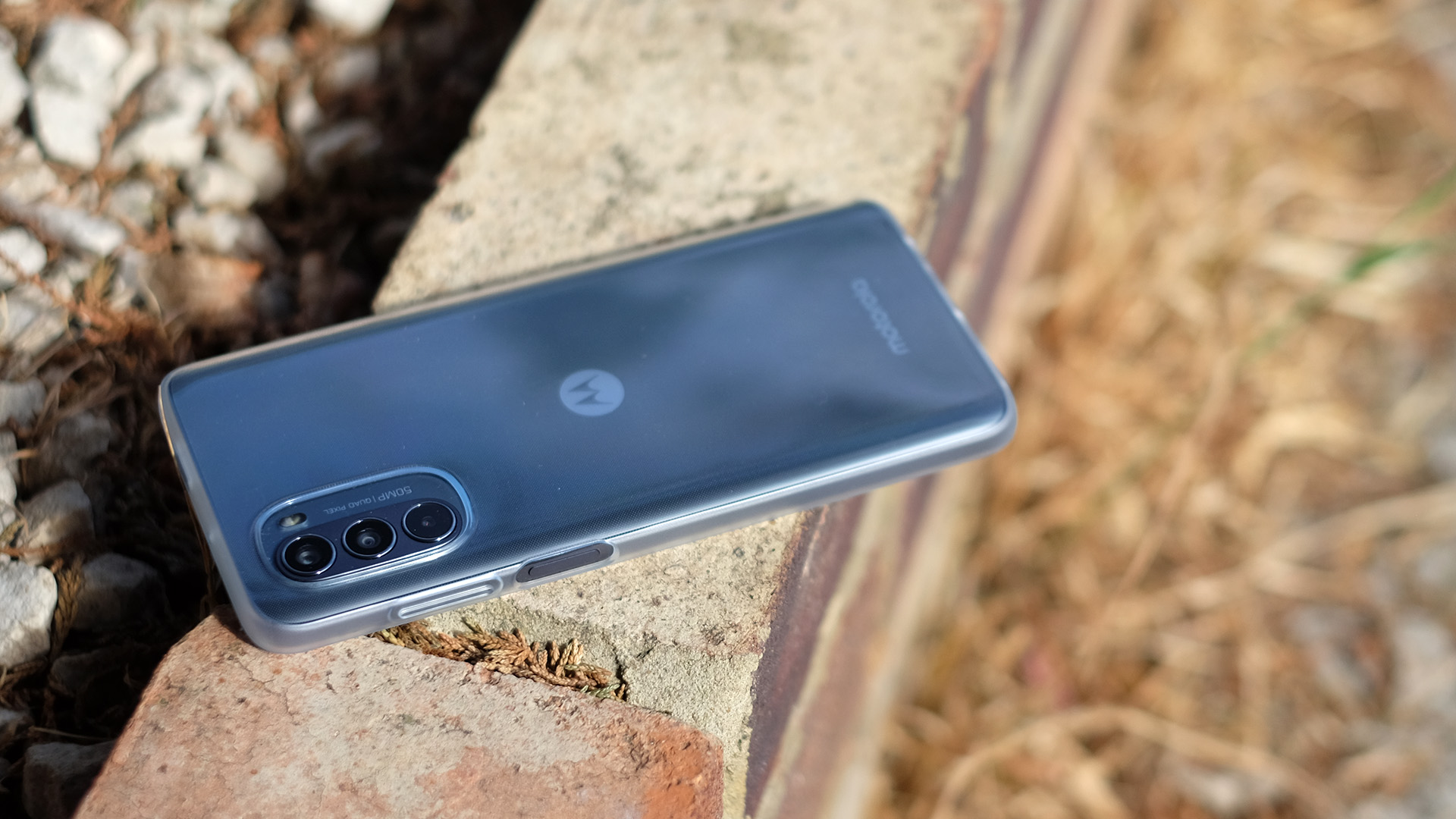
This phone’s main job is to provide 5G mobile internet to those who haven’t experienced it yet and to do so on a tight budget.
It costs £199/$399AU, clearly intended to shimmy under specific price borders. (While not widely available in the US at the time of review, you can expect to pay around $280.)
The Moto G62 was released in June 2022 alongside the higher-end Moto G82, which is a bit more powerful, a bit slimmer and has a superior OLED display. If you’re importing, take note there is a different version of the Moto G62 for the Indian market, which has a better Snapdragon 695 SoC and more RAM. It will perform a bit better than the model reviewed here.
- Value score: 4/5
Motorola Moto G62 design
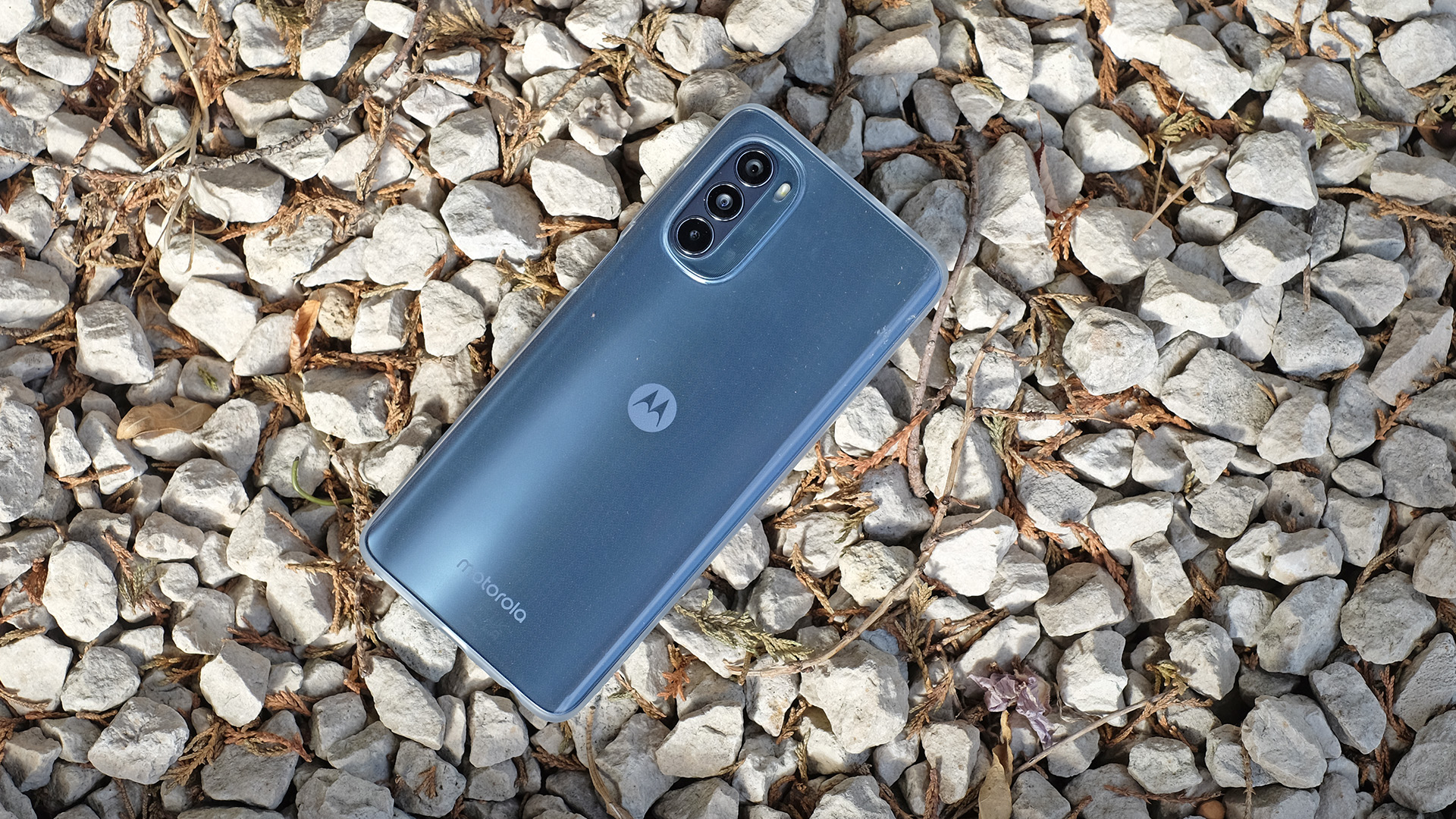
- Plastic build
- Headphone jack
- Water repellent design
The Moto G series aims to provide affordable phones for those who want a reliable, fairly easy-to-use Android. You rarely get many touches of high-end design or cutting-edge tech, they just don’t fit in the budget.
The Moto G62’s design slots into this ethos perfectly. It’s an unobtrusive but fairly good-looking phone. Its back has a light reactive finish, but one without the potentially off-putting attention-seeking of phones from Realme. The camera surround has just enough specificity to its shape to appear designed with a ‘look’ in mind.
If the Moto G62 were made of glass and metal, it would seem right at home next to phones twice the price. But like almost every phone in this family since 2019's Moto G7, the Moto G62’s shell is almost entirely plastic.
The back and sides are plastic. Its top-most screen layer is glass, but it is not specified as Gorilla Glass; suggesting it is probably glass from another company, such as Dragontrail. However, we are yet to put a scratch on it.
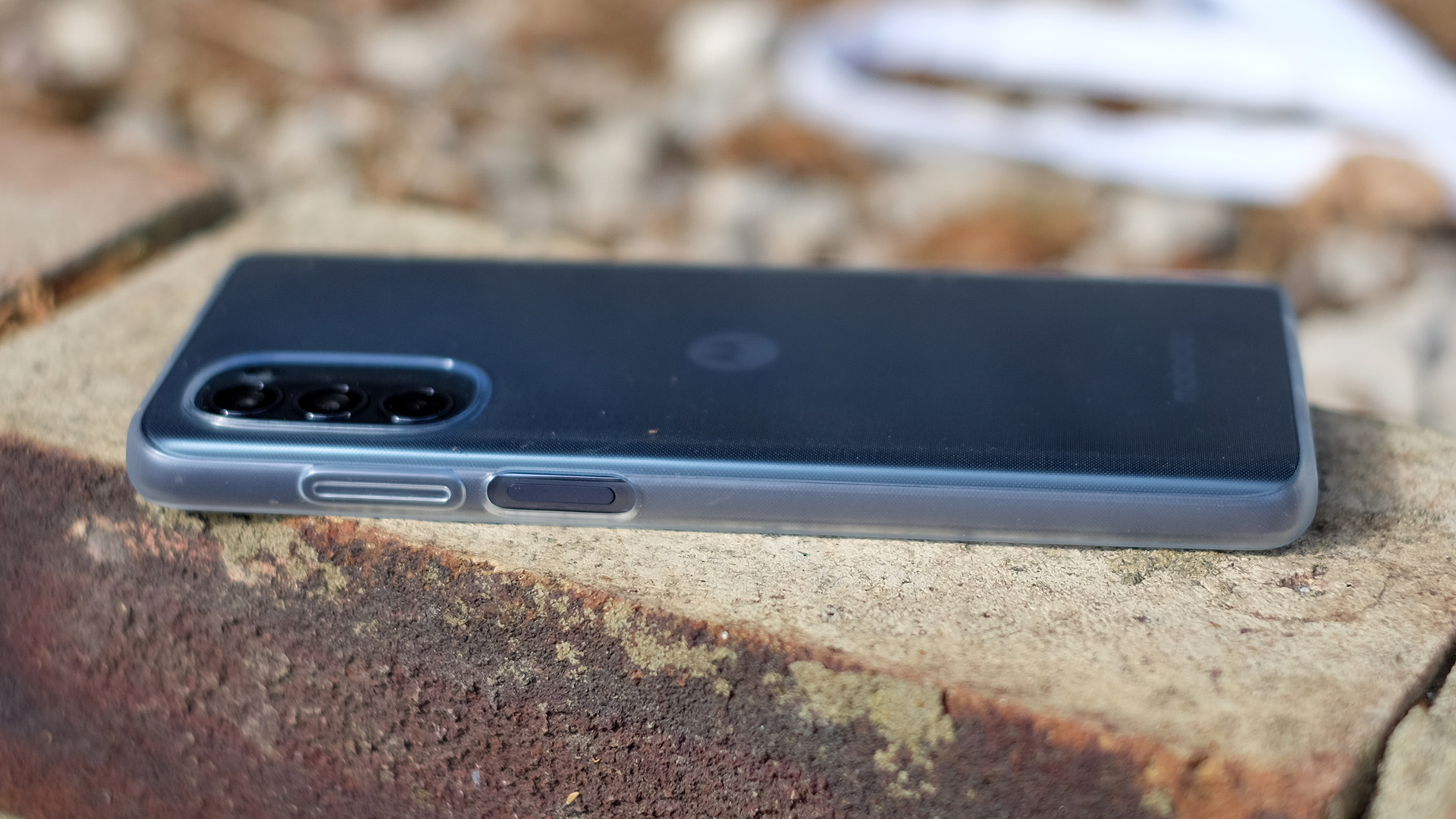
The numerous budget style aspects of the build don’t matter much if you use the bundled case, which comes in the box. This leaves the one metal outer part of the phone exposed, the part you’ll touch a bunch of times a day: the power button.
The power button doubles as a fingerprint scanner. The Moto G62’s design takes the case into account here and provides a clear guide as to where your thumb should sit, resulting in a completely intuitive unlocking experience.
Fingerprint recognition is a touch slower than that of top-tier phones but still feels great. You don’t need to push the button in, the presence of your thumb is enough. You can also lightly double-tap the finger pad to bring up a box of app shortcuts.
You’re hopefully getting a good idea of what the Moto G62 offers by now. It’s not flashy or high-end, but a few smart design choices mean its cheap parts don’t draw too much attention. Haptics is one lower-end part that will be immediately obvious if you’ve used a higher-end phone before. The vibration motor is unsophisticated and makes haptic feedback feel like farts of varying intensity, not the more refined knocks and clicks of a phone like the OnePlus Nord 2T.
The phone isn’t waterproof either but, like previous Motos of this stature, it is water repellent. Here’s Motorola’s official line on exactly what that means:
“Water-repellent design creates a barrier to help protect against moderate exposure to water such as accidental spills, splashes, or light rain.”
The Moto G62 also has a 3.5mm headphone jack and stereo speakers. These offer decent maximum volume and a good stereo image for movies and games although, unsurprisingly, this speaker array does not have the bass output of the best phone speakers.
The mid-range also sounds slightly less refined than that of the step-up Moto G82, although the tonal consistency between the bottom and above-screen drivers is good. Some stereo phone speakers have thin-sounding upper speakers: not the case here.
- Design score: 3/5
Motorola Moto G62 display
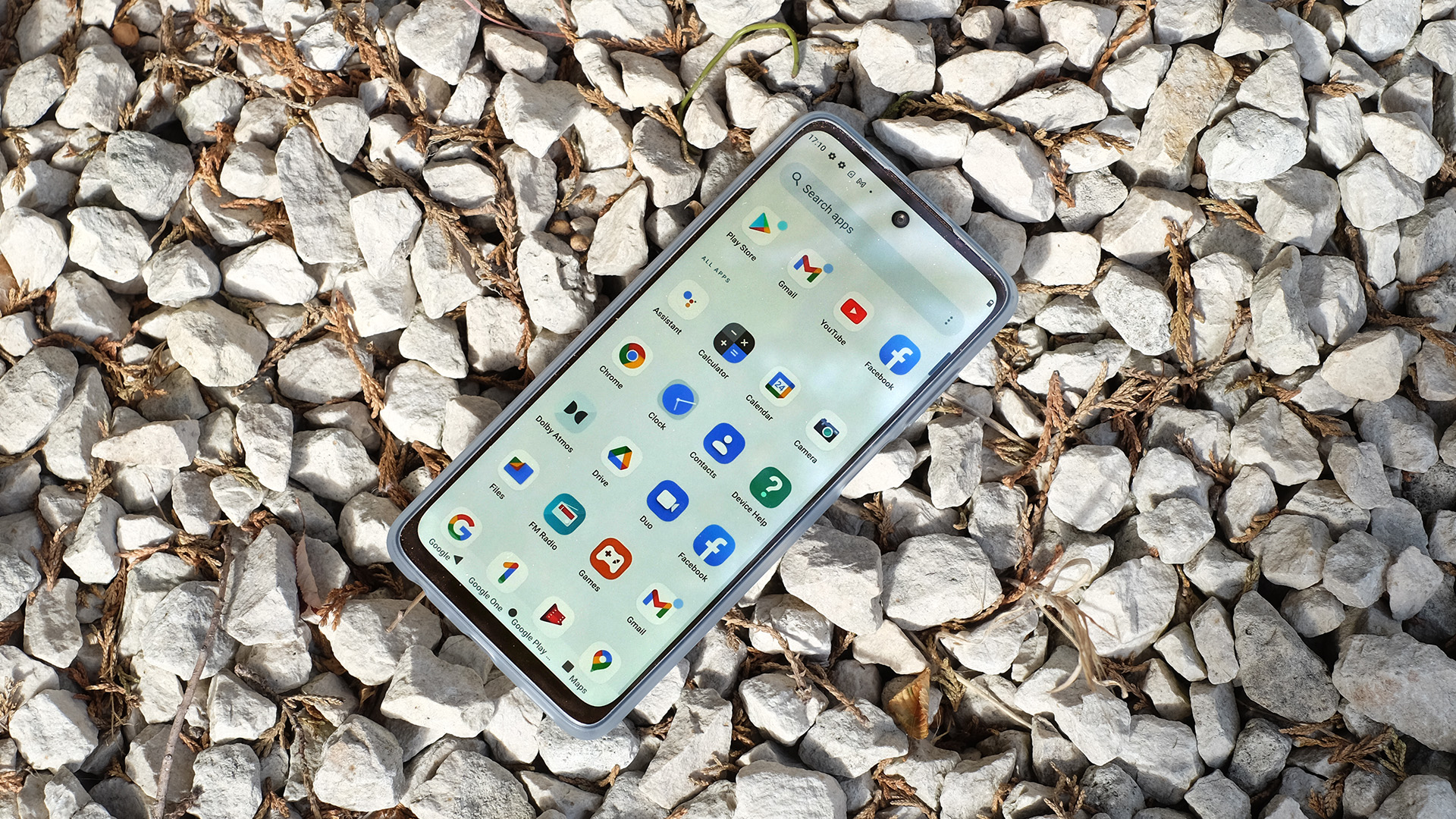
- 6.5-inch 120Hz Full HD+ IPS LCD
- Customizable color profiles
- Middling viewing angles
The Moto G62 has a 6.5-inch LCD panel. In slightly more expensive models you’d get an OLED display, but at this price, it is the norm to see LCDs instead.
What’s the difference? OLEDs have emissive pixels, meaning each pixel emits its own light source. LCDs use a separate backlight, where the entire screen is illuminated when anything is displayed. It means LCDs can’t deliver perfect black levels in a dark room.
OLEDs typically offer richer color too, but there’s nothing wrong with the Moto G62’s own color depth. You can pick between Natural and Saturated modes. Both look good, but we’d suggest moving the color temperature slider a notch or two towards the warmer end, as the default skews cool in order to make the picture appear to ‘pop’ a bit more.
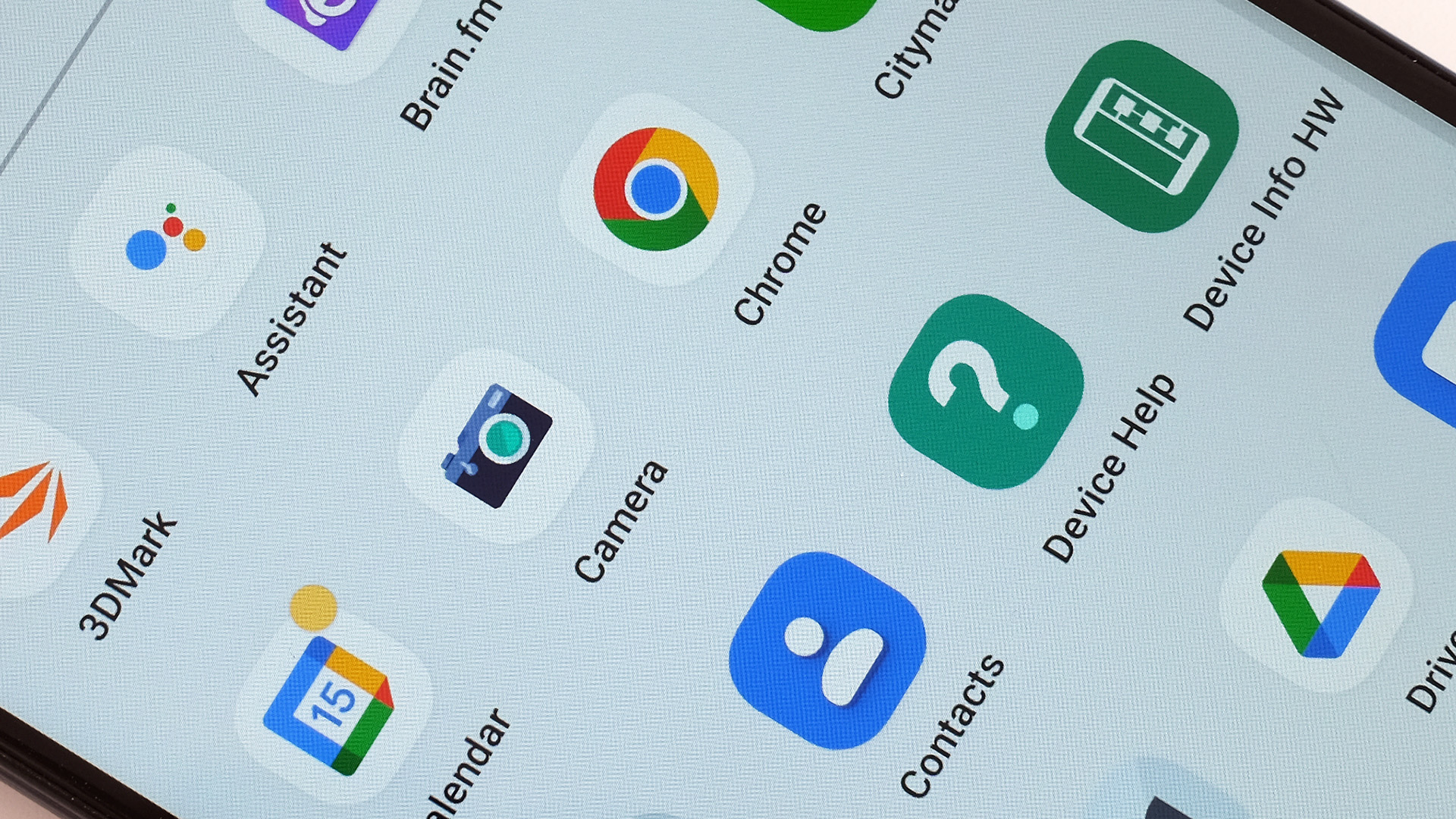
In typical LCD fashion, the Moto G62 loses a bit of brightness when viewed off-axis – not a big problem – and its peak brightness is not super-impressive either. In testing it delivered a maximum of 513 nits when out in strong direct sunlight, where some phones from a rung or two up can reach 650 to 770 nits. It makes a big difference for display visibility when outdoors.
There are some compromises here, but sharpness is just as good as that of phones twice the price. The Moto G62’s screen resolution is 2400 x 1080 pixels and is the key component that makes using the thing seem so similar to a higher-end Android, particularly with light tasks.
This resolution and a 120Hz refresh rate make the Moto G62 display a big upgrade over that of the Moto G50 5G — an older phone that played the same role, as a cheap way to get a 5G phone.
A high refresh rate like 120Hz makes scrolling through menus look much smoother. The Moto G62 isn’t the best showcase for the tech, as micro-stutters spoil the effect a bit. These tend to occur when you move from one part of the interface to another and are not a surprise or, in our opinion, a huge issue in a budget phone.
- Display score: 3.5/5
Motorola Moto G62 software and performance
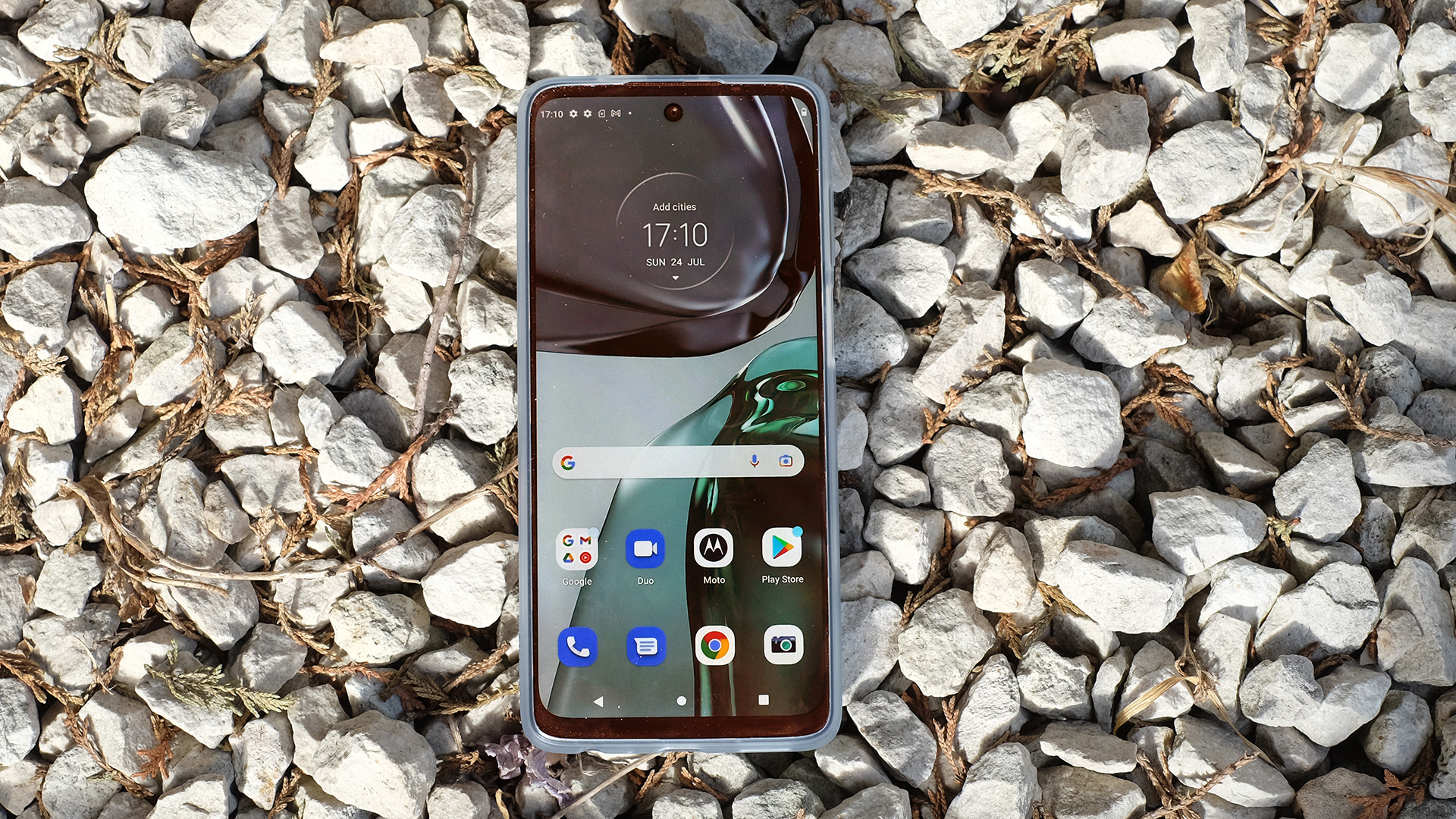
- Runs Android 12
- Snapdragon 480 Plus chipset
- Motorola-specific shortcuts/gestures
- Only 4GB RAM
The Moto G62’s interface is the same as on other Moto phones. It’s clean and simple, with much less added software than in rival phones from Xiaomi, Realme and Samsung.
There’s a Moto app to turn the handful of Moto extra features on and off, a Motorola Notifications app (this one is largely bloatware) and Dolby Atmos, which is behind the phone’s audio optimization.
What are those extra Moto features? Peek Display, Attentive Display and Gestures. Peek Display is a custom lock screen that lights up when you pick up the phone while in standby. It shows the time, battery life and icons, to denote any recently received notifications.
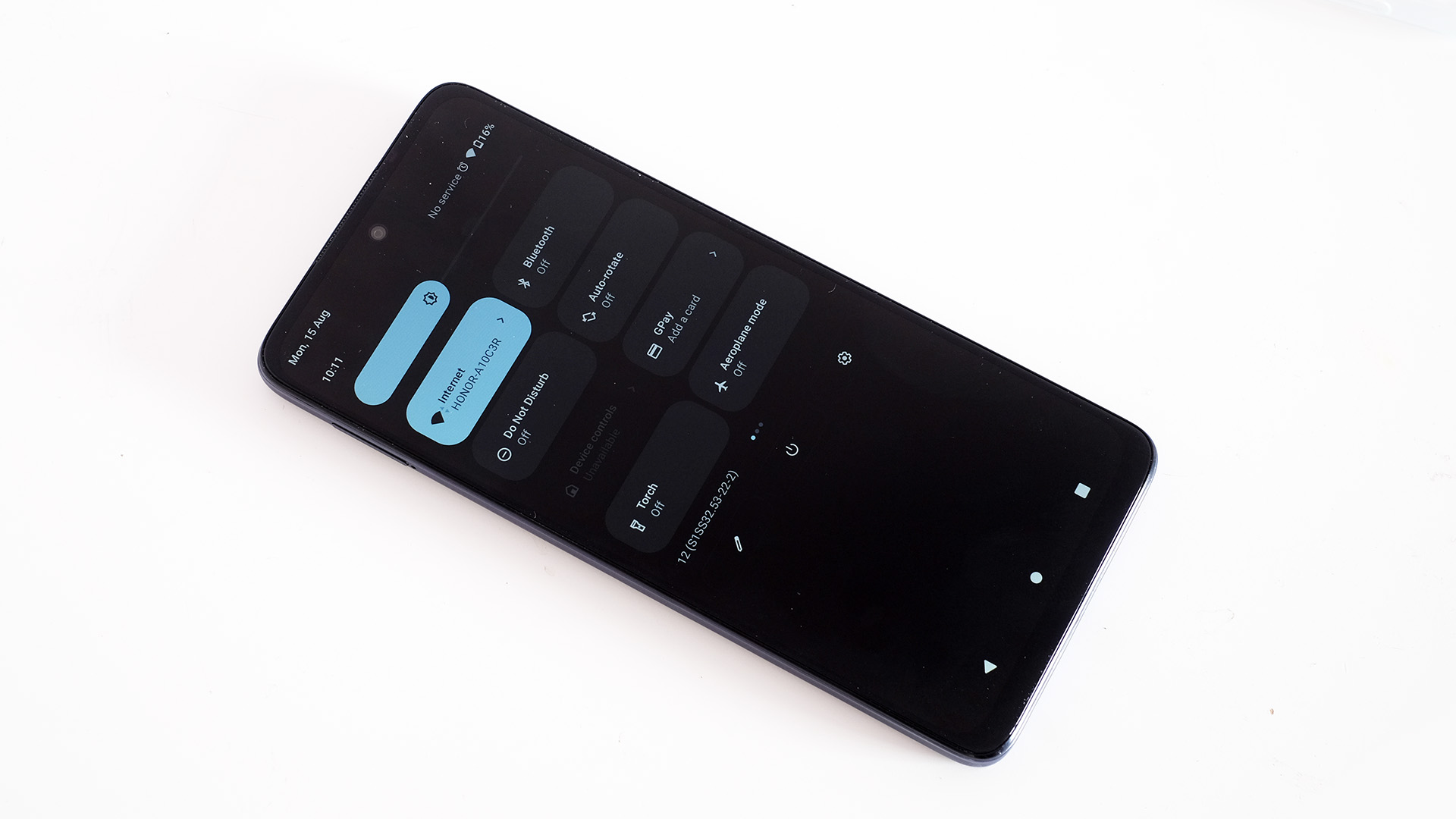
It’s a classy feature, and a big part of the visual identity of Moto phones. Attentive Display uses the front camera to keep the screen lit while you’re reading articles, for example.
Finally, the G62 has Moto Gestures, which are also Moto mainstays. You can, for example, turn the torch on by karate chopping in the air with the phone in-hand twice. Or flip the phone over onto its screen when on a flat surface to enable the Do Not Disturb mode.
These features sit on the foundations of Android 12, and the light approach to software skinning means you get to see the visual changes Google made in this version of the OS. Feature toggles in the drop-down menus sit in colorful blocks, for example, and you can choose the color to alter Android’s personality a bit.
Android feels OK in the Moto G62, but you can tell this is a lower-end phone. As mentioned in the display section of this review, there are micro-stutters during basic navigation that spoil the effect of the 120Hz display a little.
App loads can be noticeably slower than those of phones from a step up, including the Moto G82 5G. This phone also has less RAM than Google recommends as the optimal minimum for Android 12; with 4GB rather than 6GB. It’s likely why the phone is not 100% smooth, and can lag in quite an obvious way if you’re a fast-fingered app juggler.
However, you’ll find this spec repeated in other phones at the price, including the Realme 9i and Samsung Galaxy A33.
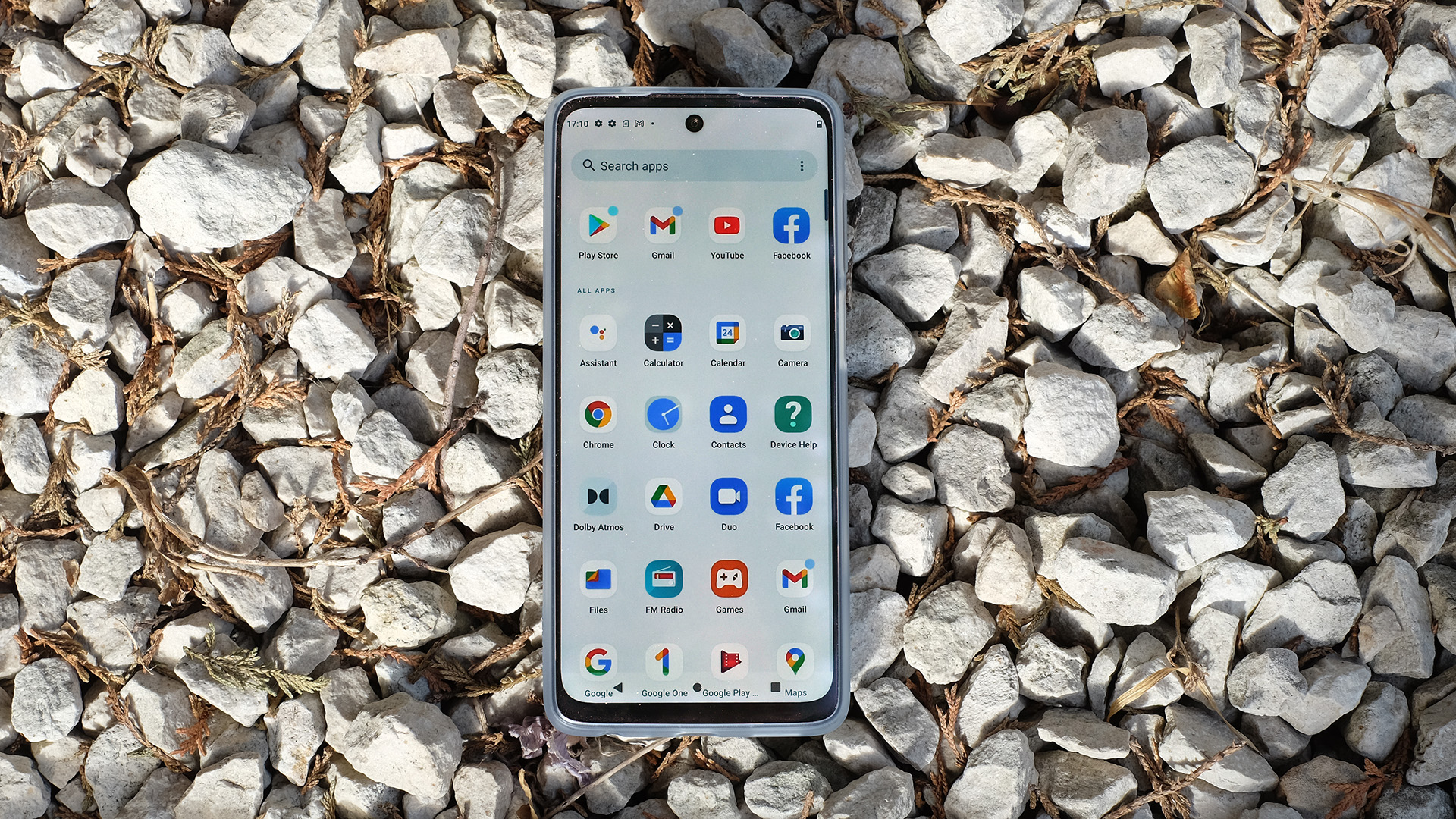
The Moto G62 has a Qualcomm Snapdragon 480 Plus processor – a tweaked version of the original Snapdragon 480 from early 2021. Its aims are largely the same as the phone’s, to deliver 5G on a budget.
Performance is just OK. The Moto G62 scores 1583 in Geekbench 5, a fairly unimpressive score. However, you’ll struggle to find anything better at the price without shopping around for deep discounts, spending at least $50 / £50 more, or giving up 5G mobile internet.
For example, the Samsung Galaxy A33 5G’s Exynos 1280 SoC has better CPU and gaming power but costs more. The same applies to the Xiaomi Poco X4 GT. If you need to stick to the Moto G62's price, the obvious alternatives are the Honor X8 and Oppo A54, both of which use Snapdragon 480 family SoCs.
Without shopping around for sales, the Moto G62 is among the best-value 5G phones around. However, you shouldn’t buy this phone if you want to play some of the most demanding games. Fortnite doesn’t run well on the Moto G62. Frame rate stability is bad enough to render the game unplayable at default graphics settings, and even when you push settings to their minimum level, regular dips into single-figure frame rates make it a trial to play.
Bear in mind, though, that Fortnite is one of the most challenging mobile games to run, and the majority of casual titles will run perfectly well. There’s a lot of room for them too. The phone has 128GB storage, where some Samsungs that retail near the price only have 64GB to work with.
- Software and performance score: 3.5/5
Motorola Moto G62 camera
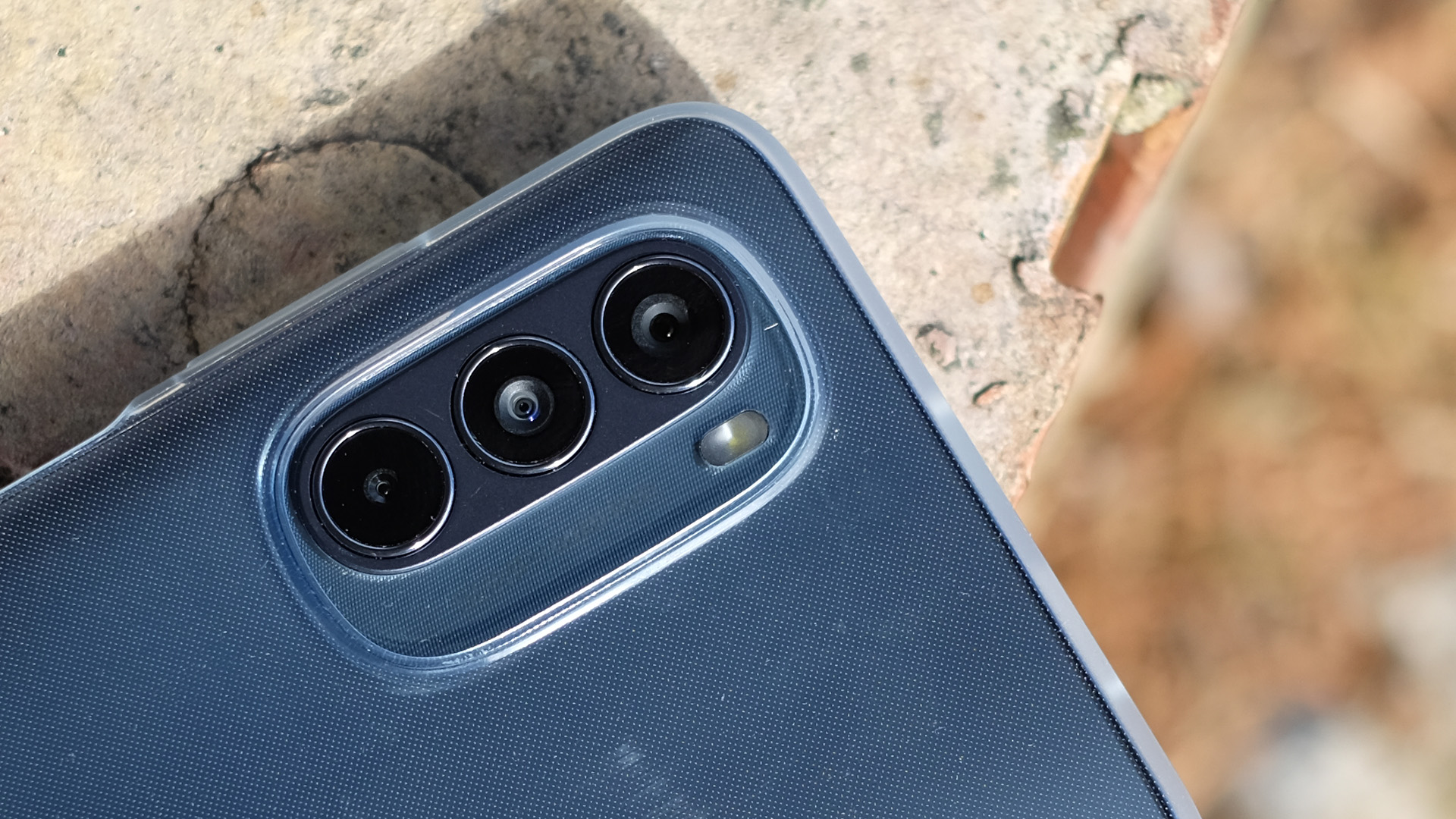
- 50MP-led triple rear camera system
- Quality lags behind competitors
- Lacklustre dynamic range and low light performance
The Moto G62 has three rear cameras, in a familiar arrangement. You get a 50MP main camera, a humble 8MP ultra-wide and a poor 2MP macro that’s barely worth using.
Over the past year or so, 50MP has become something of a trendy resolution, but the Moto G62 has one of the weakest 50MP cameras out there. It uses the Samsung JN1 sensor, which packs an awful lot of pixels into a small sensor chip: not a good place to start.
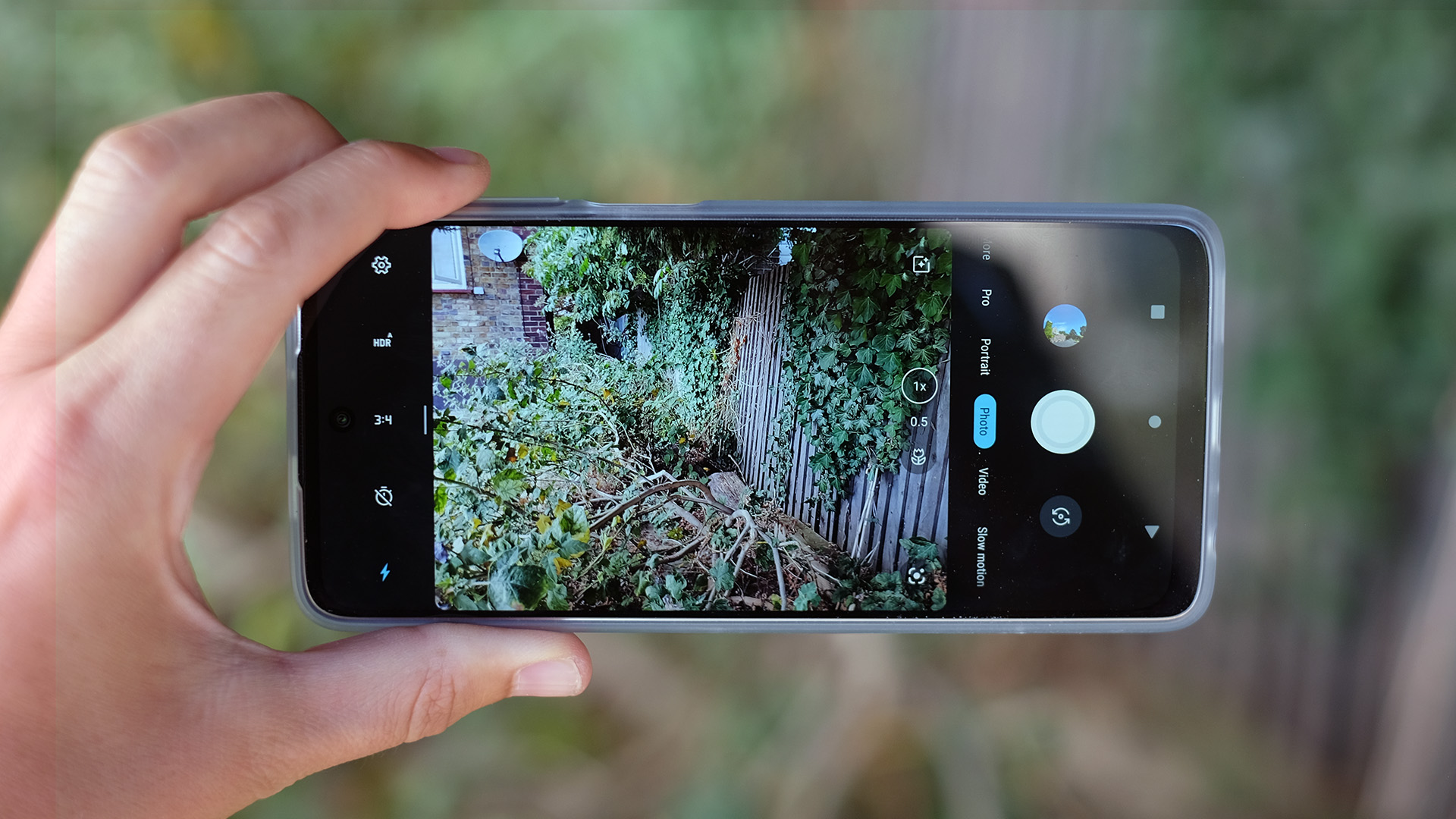
Photos during the day can still look perfectly sound, but the importance of software and a phone’s ISP (image signal processor) are highlighted by the step-up Moto G82. It has the same sensor but tends to deliver much better color reproduction and its images look significantly less processed up close.
The Moto G62 can make grassy nature scenes look a touch anemic, an effect more obvious in the main camera than the ultra-wide. And there’s too much sharpening and manipulation of contrast when you zoom into pics. However, if you didn’t have the Moto G82 to hand to make such comparisons, the Moto G62’s camera isn’t what you’d call a failure.
It still has solid Auto HDR, which lets you shoot with no worries, about where the sun is in a scene. Highlights and shadows are balanced fairly well, considering this is a cheaper phone too. We’d give most a tweak or two before sharing online, but the Moto G62’s ability to avoid egregious blown highlights is a big plus.
Camera samples
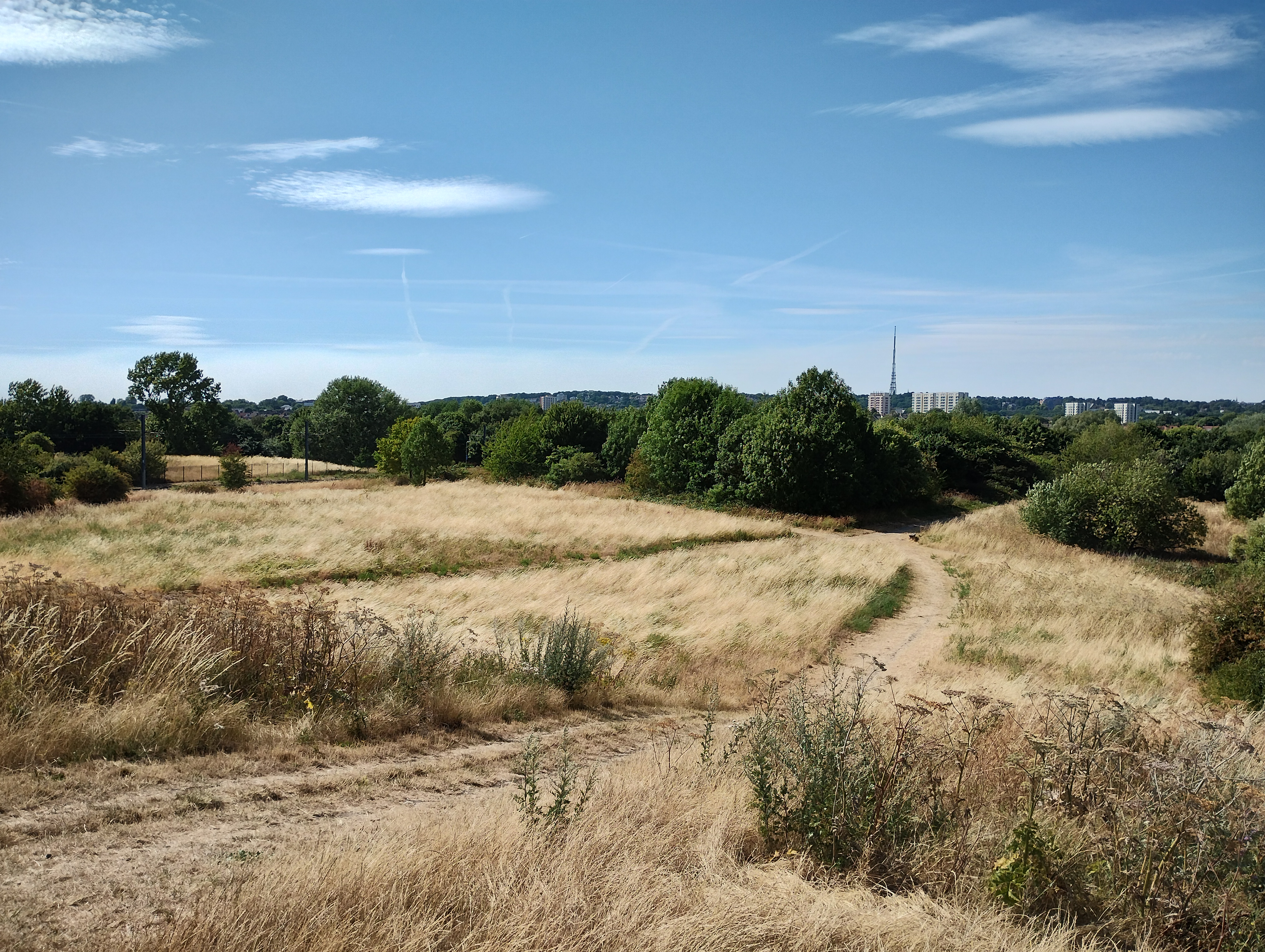
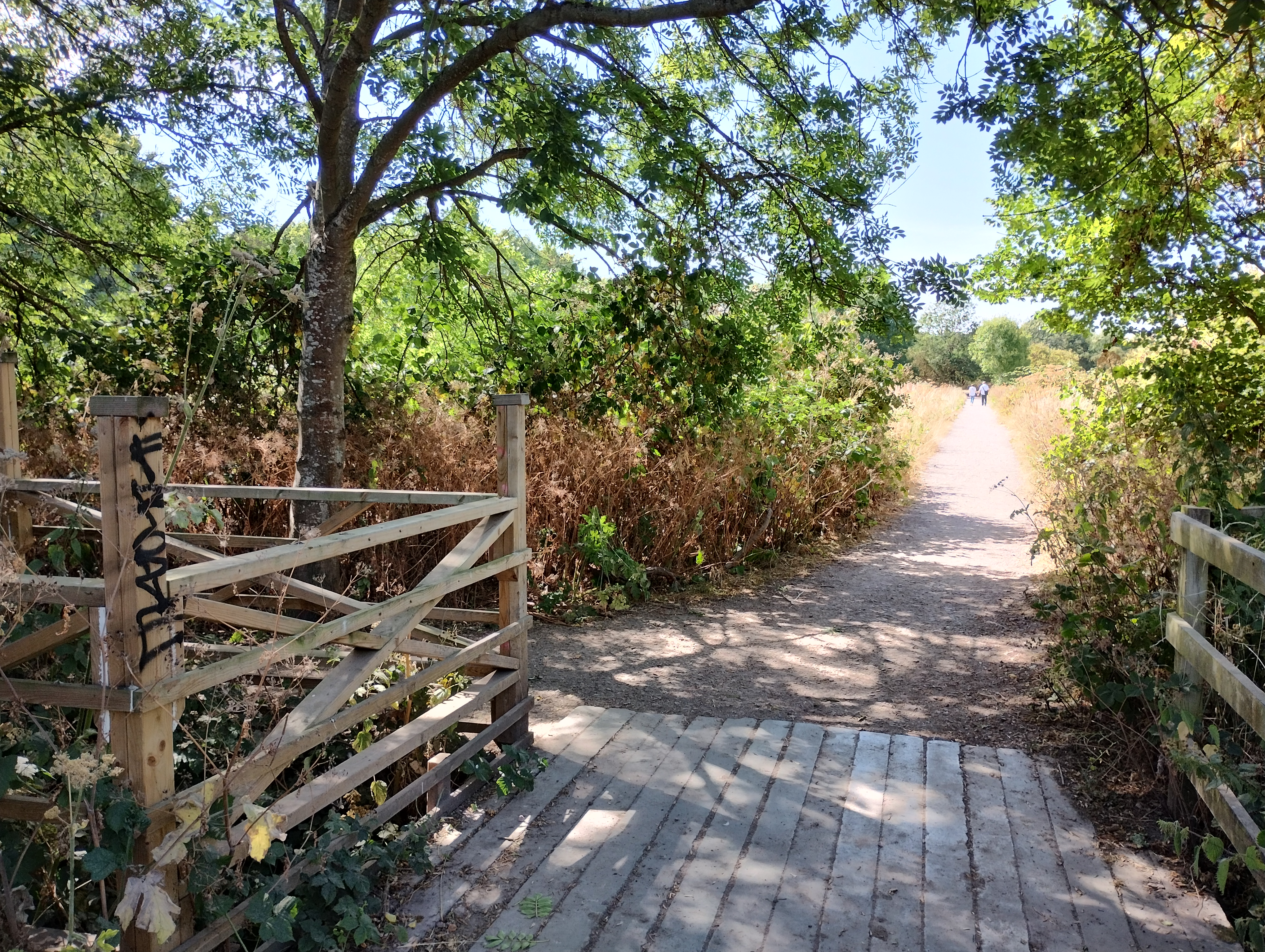
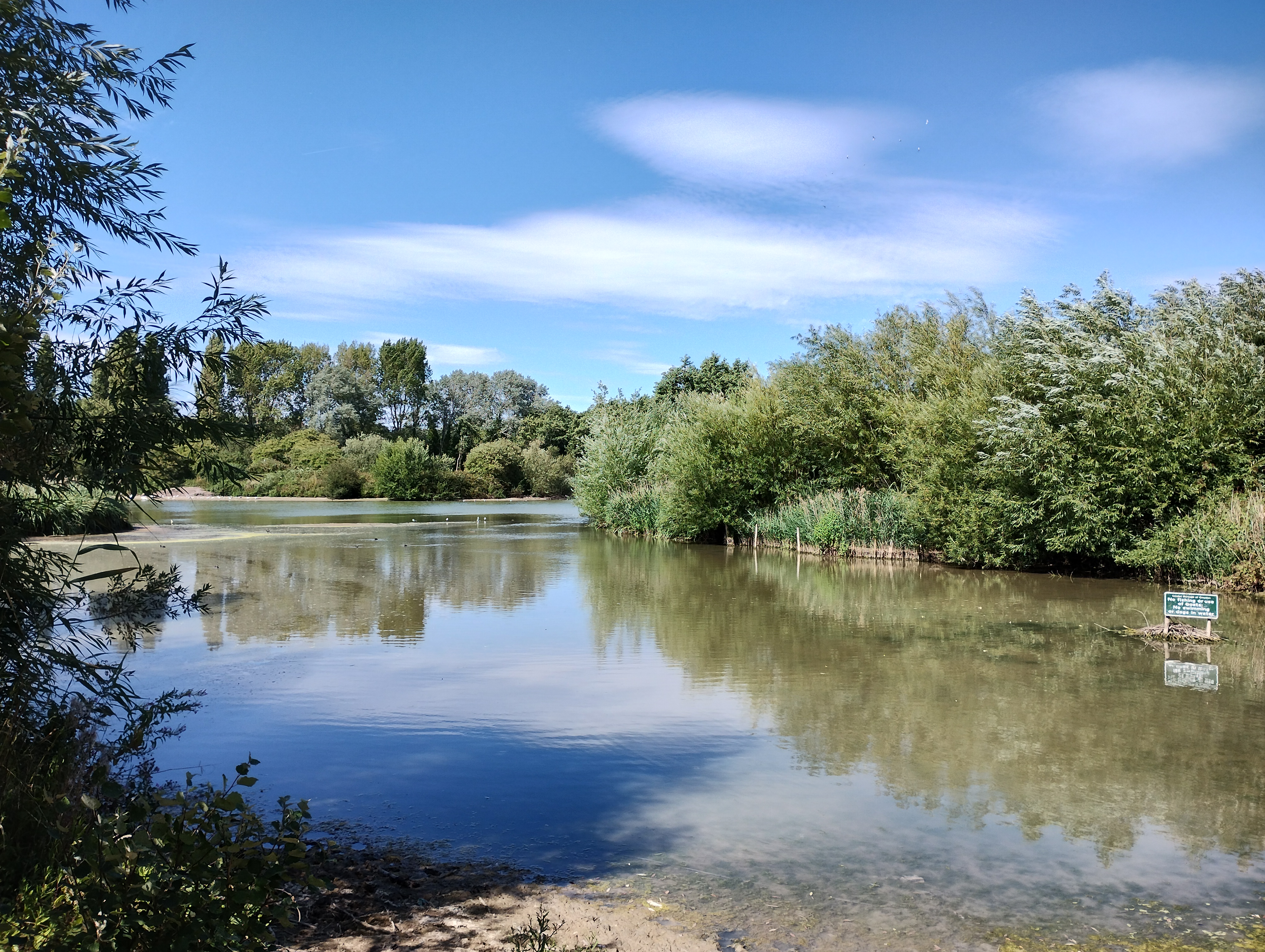

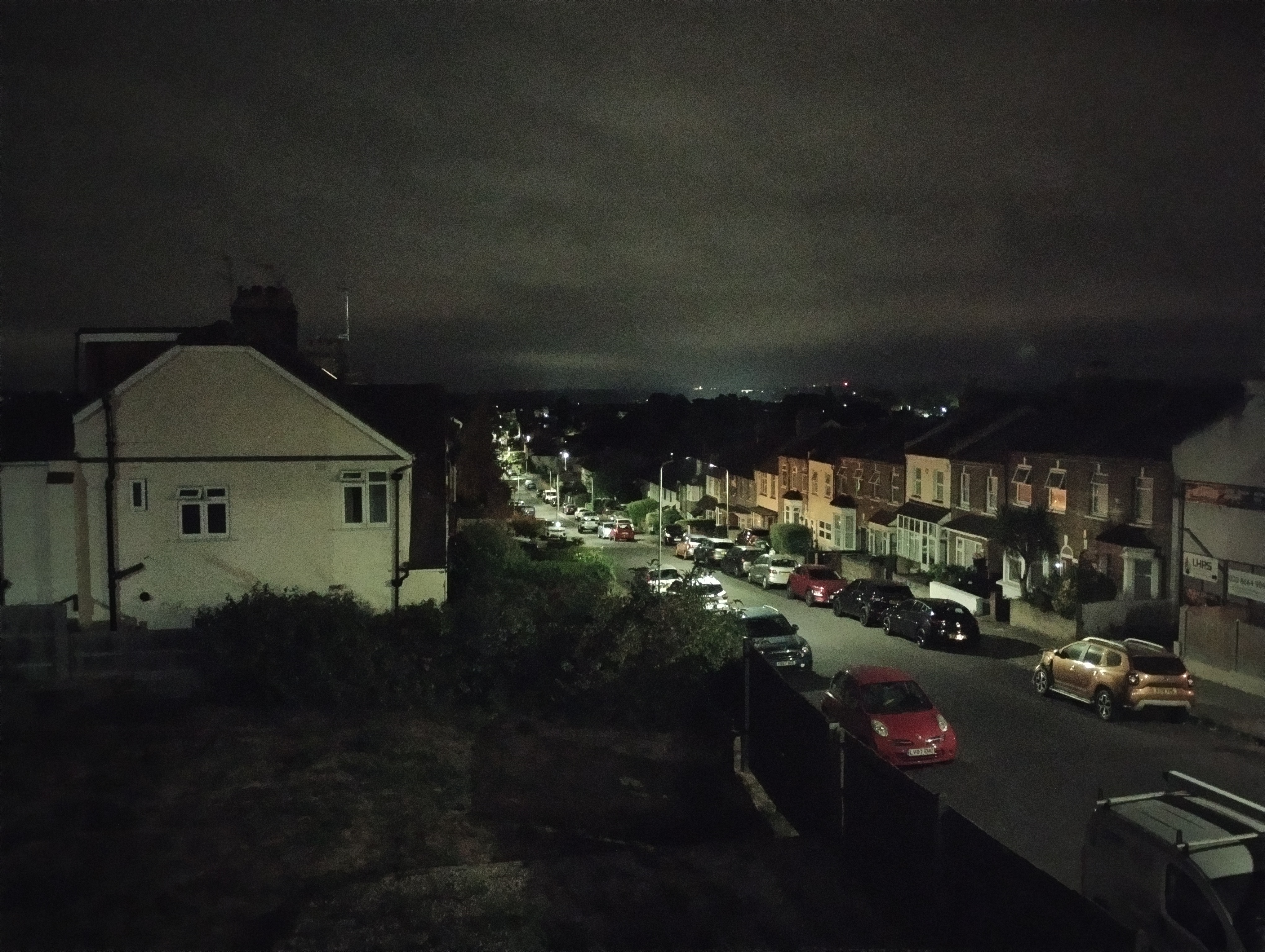

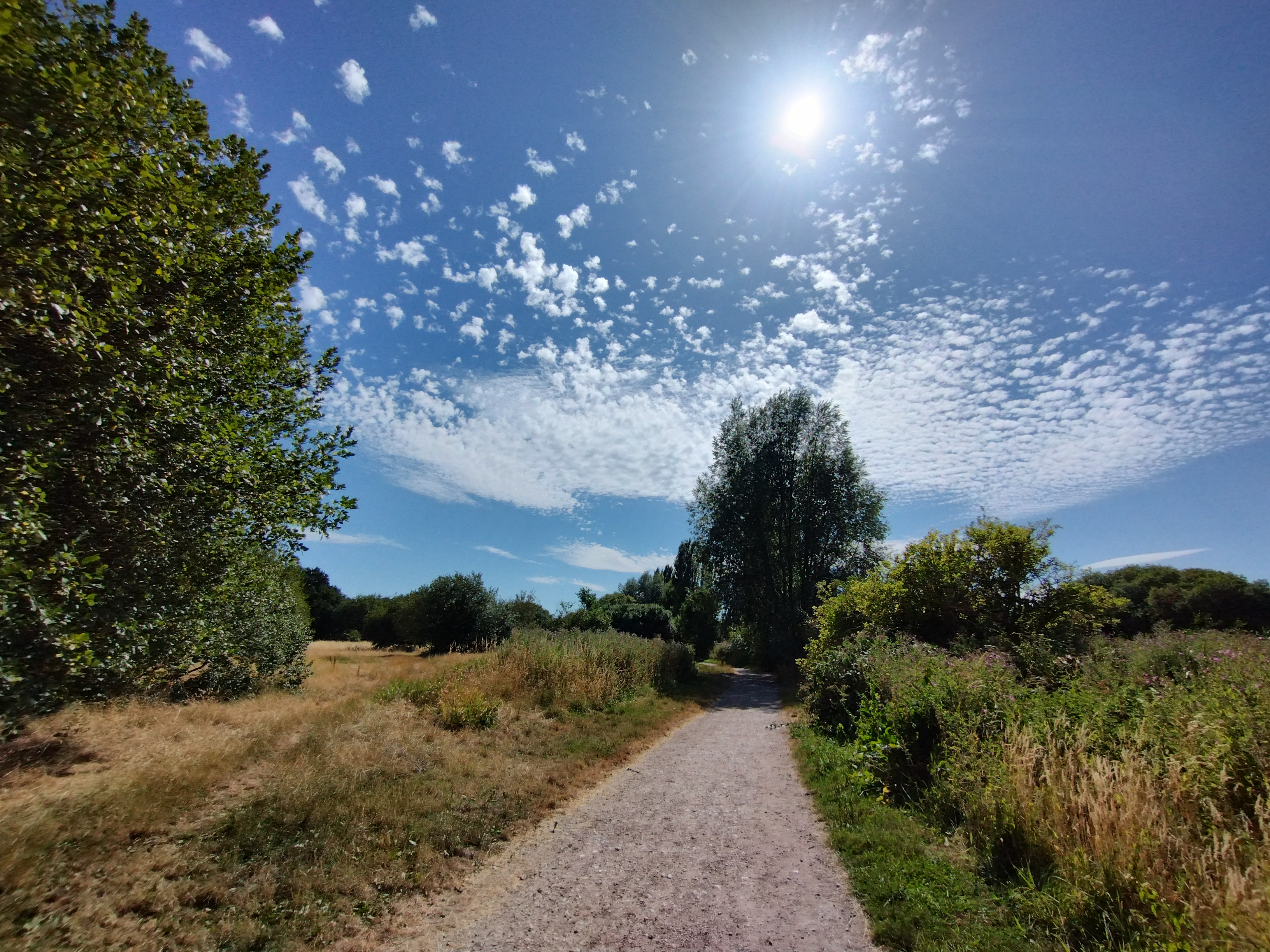
Sky gradients reveal the limited raw ability of the sensor once more, with a tendency to turn green towards the horizon on bright blue days — an effect you don’t see in cameras with better native dynamic range. We also noticed a tendency for diffuse clouds to end up with a purplish hue around their borders. It’s another telltale sign the Moto G62 doesn’t have great camera hardware.
However, load images up in Photoshop, or your editing app of choice, warm up the mid-tones a bit and the Moto G62’s pictures suddenly look a good 30% more inviting.
There’s no saving the phone’s night pictures, though. While the Moto G62 has a Night Vision mode for low-light photography, night-time images are low on detail and dynamic range, and often have a sheen of granular noise over their surface.
Highly effective computational photography for solid low-light phone pics has rapidly worked its way down to cheaper models. But it hasn’t made it this low, yet.
The Moto G62’s ultra-wide camera uses another Samsung sensor, the ISOCELL 4H7. It suffers from the same issues as secondary cameras in other entry-level phones, like poor sharpness at the sides of the frame and lower dynamic range — which leads to blown highlights in some pics.
However, on occasion, its photos are more instantly charming than those of the main camera, thanks to their richer colors.
The Moto G62 lets you shoot 1080p video at 30fps or 60fps. You’re better off sticking with the former most of the time, as the 60fps mode doesn’t offer image stabilization. Video capture using the ultrawide (at 1080p) and macro camera (at 720p) is possible too – a nice touch.
Dig into the camera app’s Settings menu and you can switch the 16MP selfie camera between 4MP and High Resolution modes. However, despite pixel binning, selfies become quite soft and vague in dim indoor light, and you don’t really see the benefit of the higher sensor resolution in good lighting.
It’s an OK selfie camera for an affordable 5G phone, but nothing more than that.
- Camera score: 2.5/5
Motorola Moto G62 battery life
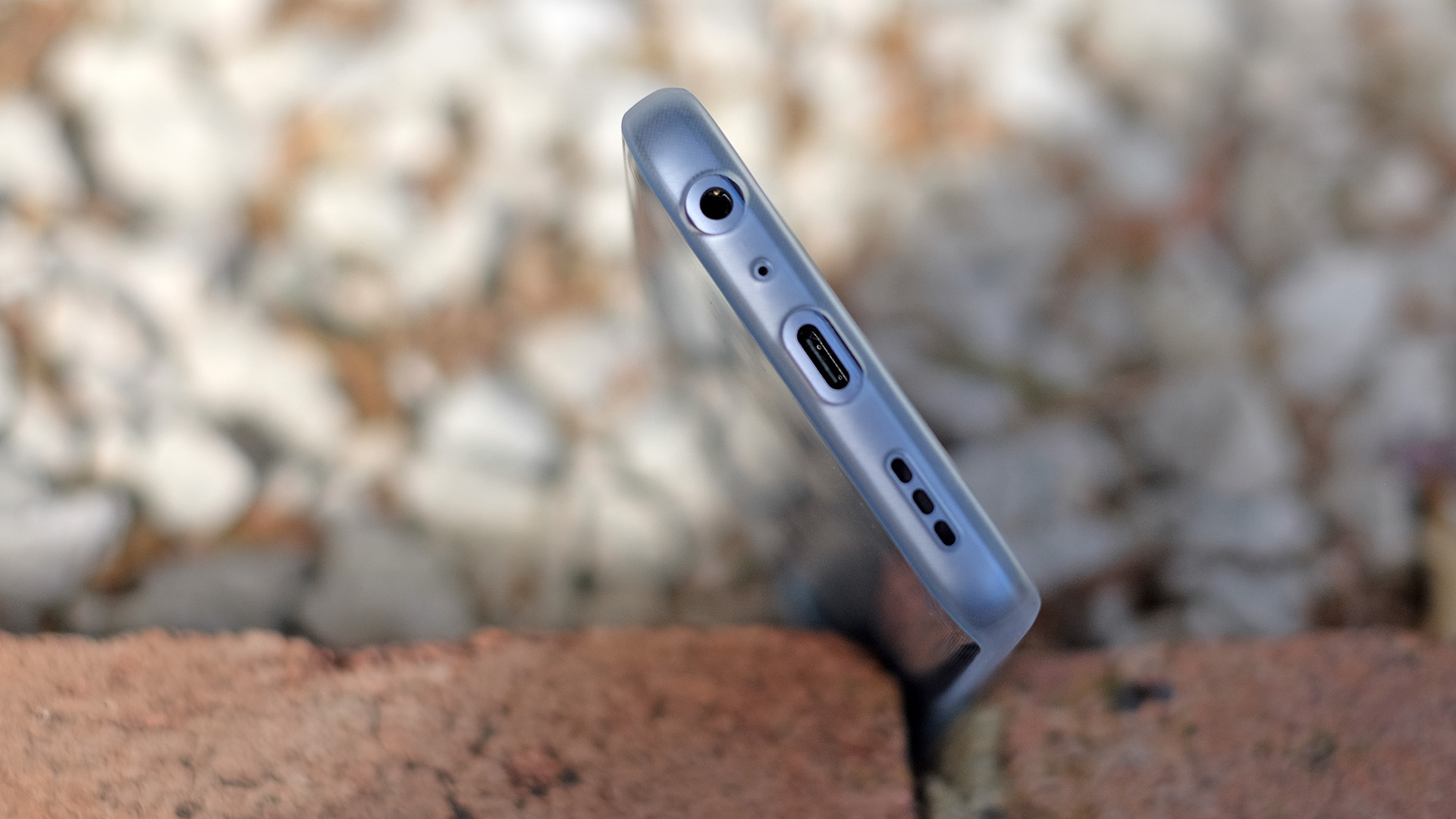
- Large 5,000mAh battery
- Supports 15W charging
- Slow to refill
The Moto G62 has a 5000mAh battery, which has been the standard for this series for a couple of generations now.
It includes a dismal 10W charger but will draw up to around 15W if you use one of Motorola’s more powerful adapters. We’ve seen reports the phone comes with a 15W charger in other territories, but our Moto G62 did not. For faster charging on a budget, check out something like the Poco M4 Pro. It includes a 33W charger.
Using our power meter we found the bundled charger actually draws up to 12W. However, real-world charging speeds are still poor. After an hour on charge, the Moto G62 had reached just 38%. This is a phone that needs to charge overnight, and quick top-ups before a night out won’t have much effect.
Battery life is good, though it doesn’t quite reach the heights of the old Moto G50 5G. But that phone has a lower-resolution 90Hz screen.
You can expect to have 20-30% charge left by the end of a day of moderate use, which is what we typically saw when not playing games on the Moto G62 for any significant time. Very light users may be able to squeeze two days out of a charge, but we don’t think that is realistic if you tend to watch YouTube on your phone, or spend time scrolling through social media apps.
- Battery score: 4/5
Motorola Moto G62 score card
| Attributes | Notes | Rating |
|---|---|---|
| Design | A plastic build with touches of metal, best keep the in-box case on. | 3/5 |
| Display | Nice Full HD 120Hz panel that relies on inferior LCD tech with so-so viewing angles. | 3.5/5 |
| Software & performance | Clean UX but prone to performance stutters. | 3.5/5 |
| Cameras | A 50MP main camera sounds impressive but quality and post-processing fall apart all too easily. | 2.5/5 |
| Battery | Nice longevity, hamstrung by slow charging. | 4/5 |
| Value | 5G, a nice display and a well-appointed user experience can be hard to find at this price point. | 4/5 |
Should I buy the Motorola Moto G62?
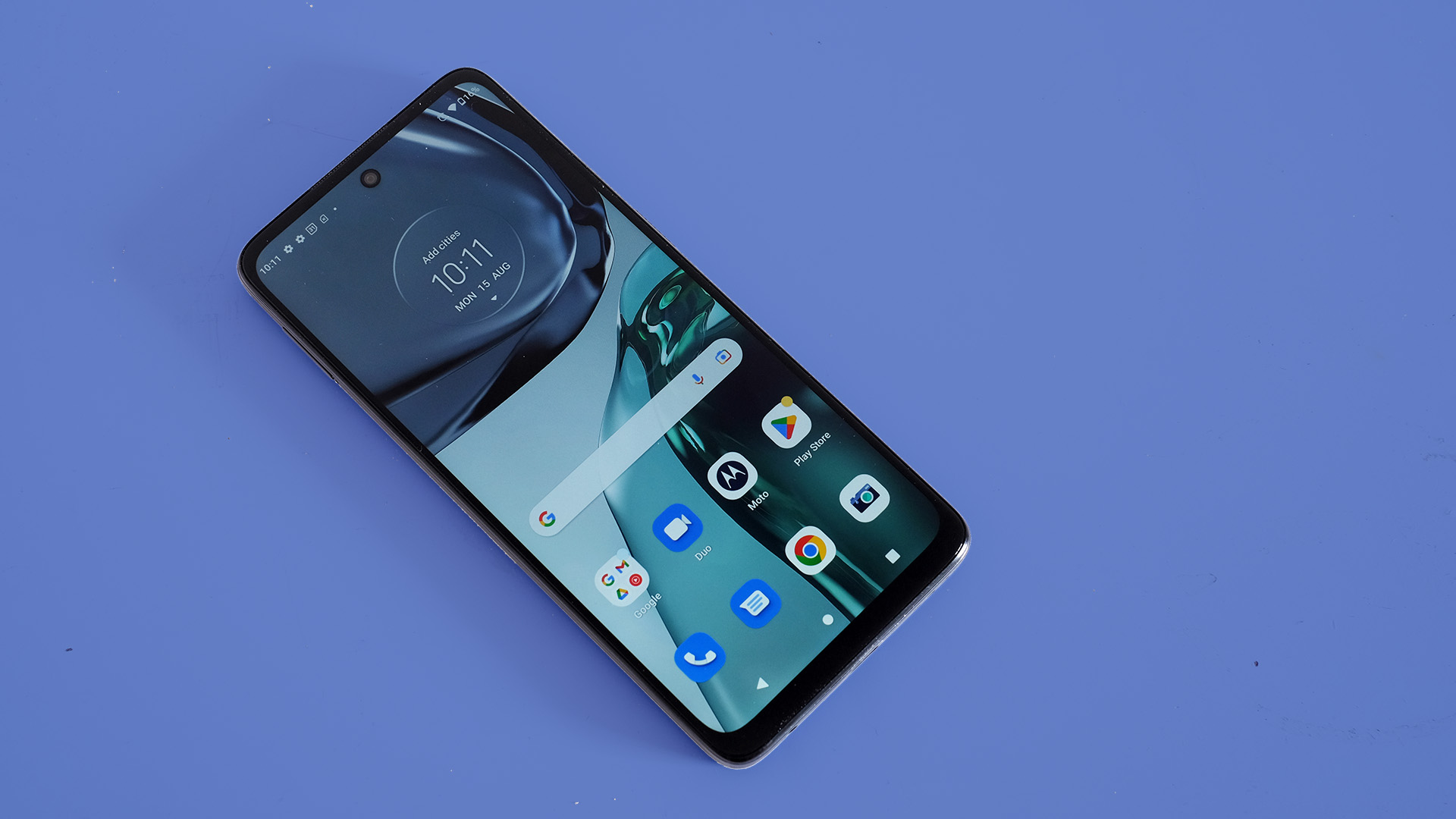
Buy it if...
You want a cheap 5G phone
This phone is one of the cheaper 5G phones. While 5G isn’t a life-changing feature, it is one we’d recommend most phone buyers look for in 2022 as it lets you get the best value out of your phone contract.
You're a podcast or YouTube fan
The Moto G62 has a decent set of speakers. They may not be bassy music monsters but are great for podcasts, and the stereo arrangement is important if you intend to watch Netflix or YouTube on your phone without using headphones.
You want plenty of space
128GB storage is a generous amount for a phone this affordable. It means there’s plenty of room for photos and apps. We wouldn’t have been at all surprised had Motorola decided to skimp and leave the phone with just 64GB.
Don't buy it if...
You're picky about camera quality
The Moto G62’s camera is not particularly strong. Its night images are weak and daytime pictures can look undersaturated or a little too cool. And while the Auto HDR function is good, it can’t completely hide the limited dynamic range of the sensor itself.
If want fast charging
You only get a wimpy 10W charger with the Moto G62, meaning charges take a very long time compared to phones that cost a little more. It does support 15W charging if you get a more powerful adapter, but this is still a way off the 33W (and up) charging some other brands offer in their affordable models.
You're into lavish 3D games
The Qualcomm Snapdragon 480 Plus SoC is not equipped to handle some of Android’s tougher games. Casual games should run fine, but if you want to play Fortnite, we’d recommend getting a phone with a little more graphical power.
Also consider
Motorola Moto G82
The step-up phone in the series has a better processor, more RAM and a richer-looking OLED screen. It’s a little slimmer too and while the camera hardware is the same, its picture processing is better. Pay a little more, get a little more. Read our Motorola Moto G82 review for more.
Oppo A54 5G
This is the closest rival from Oppo, and offers similar specs and features. We had fewer issues with this phone’s camera but it has a weaker speaker and the older version of the Snapdragon 480. Worth a look if you find it for less money online.
Read our Oppo A54 5G review for more
Poco X4 Pro
The Poco X4 Pro is a little more expensive than the Moto G62 but has a faster processor and better primary camera; fixing the key issues of the Moto. It also has an OLED screen, one higher-end than the LCD used in the Moto G62.
Check out our Poco X4 Pro review
- First reviewed September 2022
Andrew is a freelance journalist and has been writing and editing for some of the UK's top tech and lifestyle publications including TrustedReviews, Stuff, T3, TechRadar, Lifehacker and others.
